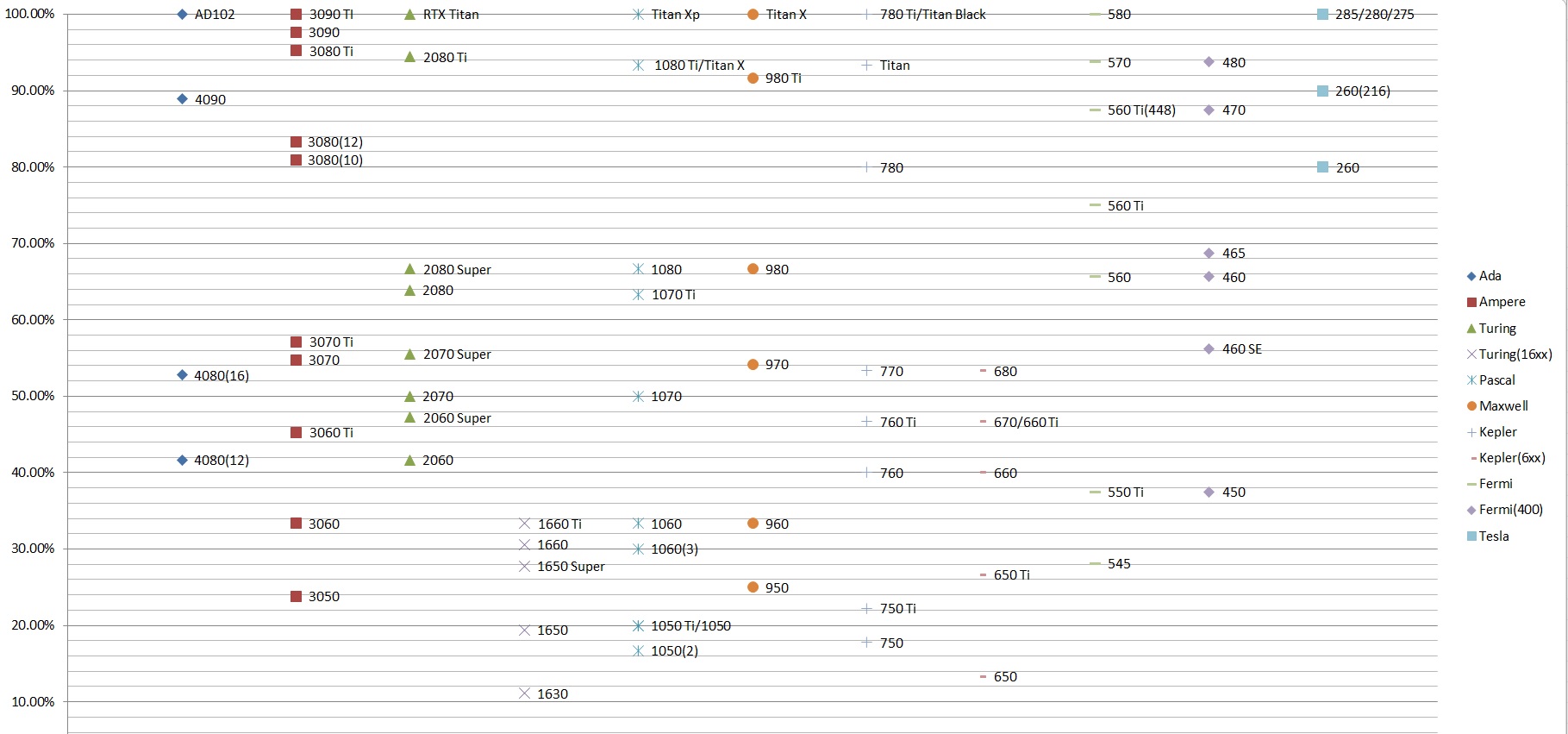I’m wondering what retail price points users here consider a “reasonable value” for different tiers of new graphics cards. I’m not talking about any specific cards currently available, but generally about “classes” of cards. For simplicity I will be using the following names to describe the different tiers.
Halo cards: RTX xx90, RX x9xx
Flagship cards: RTX xx80, RX x8xx
Mainstream cards: RTX xx70, RX x7xx
Entry level cards: RTX xx60, RX x6xx
I’m interested to see how the years of GPU scarcity have altered people’s perception. Of course every generation of cards will have differing “bang for the buck” at different tiers, so this is a very general discussion.
My thoughts are as follows:
Halo: $900
Flagship: $600
Mainstream: $400
Entry: $200
I feel like Halo cards generally demand a premium for maximum performance, but usually not enough performance uplift to justify the price. Flagship cards will provide most of the performance of a Halo card at a price that makes a lot more sense. Mainstream and Entry level cards provide incrementally less performance, but at a much easier price to swallow for most. The best “bang for the buck” usually falls into Mainstream or Entry, the 3080 being a notable recent exception.
I’ve found myself usually tending towards the Mainstream cards, but inflated prices have made that feel like far less of a value lately. Now that real GPU scarcity is over, and artificial scarcity can only last so long, I’m hoping this will give me some insight on where prices will settle eventually.
Edit:
I made a chart that shows how GPU SKUs from each generation stack up percentage-wise to the full die of that generation. The Kepler and Fermi cards didn't have a full die card in their first releases, so they are scaled off of the 700 and 500 series. The 40 series has a lot of similarity to the 600 series with the 80 SKU being seriously gimped compared to the full die.

Halo cards: RTX xx90, RX x9xx
Flagship cards: RTX xx80, RX x8xx
Mainstream cards: RTX xx70, RX x7xx
Entry level cards: RTX xx60, RX x6xx
I’m interested to see how the years of GPU scarcity have altered people’s perception. Of course every generation of cards will have differing “bang for the buck” at different tiers, so this is a very general discussion.
My thoughts are as follows:
Halo: $900
Flagship: $600
Mainstream: $400
Entry: $200
I feel like Halo cards generally demand a premium for maximum performance, but usually not enough performance uplift to justify the price. Flagship cards will provide most of the performance of a Halo card at a price that makes a lot more sense. Mainstream and Entry level cards provide incrementally less performance, but at a much easier price to swallow for most. The best “bang for the buck” usually falls into Mainstream or Entry, the 3080 being a notable recent exception.
I’ve found myself usually tending towards the Mainstream cards, but inflated prices have made that feel like far less of a value lately. Now that real GPU scarcity is over, and artificial scarcity can only last so long, I’m hoping this will give me some insight on where prices will settle eventually.
Edit:
I made a chart that shows how GPU SKUs from each generation stack up percentage-wise to the full die of that generation. The Kepler and Fermi cards didn't have a full die card in their first releases, so they are scaled off of the 700 and 500 series. The 40 series has a lot of similarity to the 600 series with the 80 SKU being seriously gimped compared to the full die.

Last edited:
![[H]ard|Forum](/styles/hardforum/xenforo/logo_dark.png)